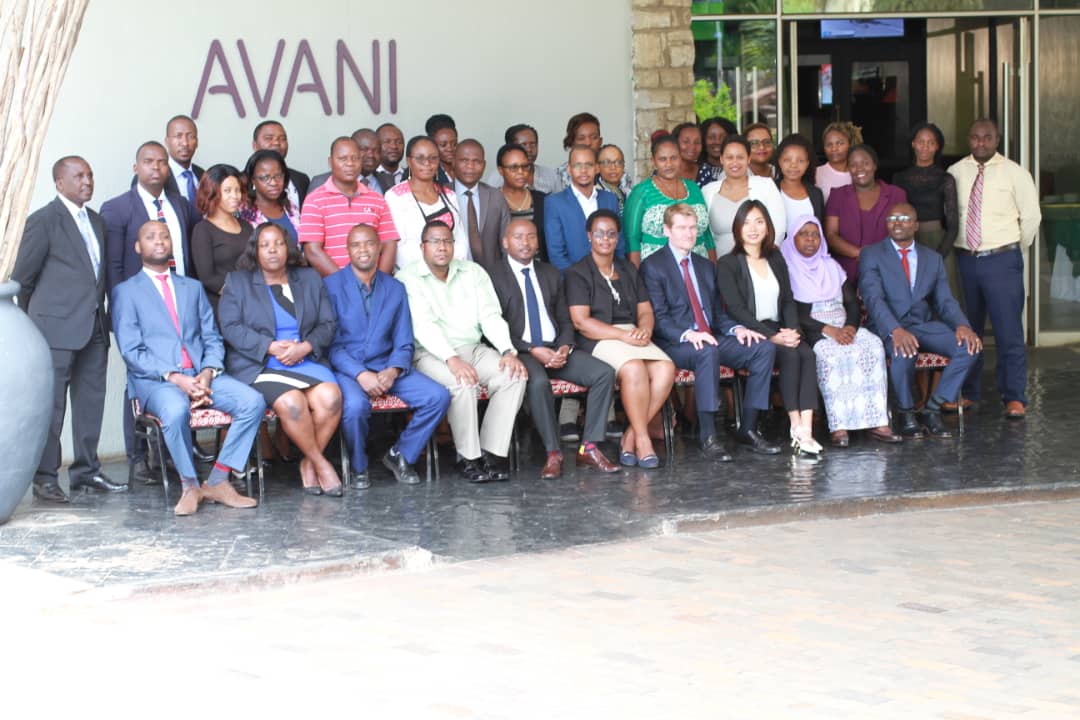Staff Writer
AFRICAN countries’ pace of debt accumulation has been high in recent years, due to their efforts to finance sustainable development goals (SDGs) and the African Union’s agenda 2063, which require substantial financial resources to be spend on social programmes.
This was said by the Macroeconomic and Financial Management Institute (MEFMI) on the sidelines of a recent training on government finance and public sector debt statistics which it held for its member countries in Maseru.
MEFMI is a regional organisation owned by 14 east and southern African countries namely Angola, Botswana, Burundi, Kenya, Lesotho, Malawi, Mozambique, Namibia, Rwanda, Swaziland, Tanzania, Uganda, Zambia and Zimbabwe.
The training in Maseru started on the 11th of March 2019 and is set to end tomorrow. MEFMI is conducting the training in collaboration with the International Monetary Fund’s (IMF) statistics department.
Tiviniton Makuve, who is MEFMI’s manager in the Debt Management Programme said countries are now expected to spend more on health, infrastructure and other social programmes, to make progress towards the achievement of SDGs. He said in most cases, this has resulted in the rapid pace of public debt accumulation.
“Countries are under pressure to deliver on SDGs so they borrow more but we have realised that in most cases, the pace at which they are accumulating debt is not consistent with long-term debt sustainability,” Mr Makuve said.
“We are now trying to build capacity to ensure that as a countries borrow to finance development priorities, they strike a balance between achieving development goals and maintaining public debt at sustainable levels. This will help to avoid another round of debt crisis similar to that happened in the 1990s, where most countries were classified as highly indebted poor countries.
“The task of building capacity for prudent management of public debt has not been insurmountable for us, as we have been equal to the task. We have also not been alone in this journey, as we have collaborated with the IMF, the World Bank and the African Development Bank (AfDB) for coordinated delivery of capacity building in the region. This allowed us to leverage on their expertise and global experience for the benefit of our member countries.”
Senei Molapo, MEFMI’s manager for the Macro-economic Management Programme said member countries have shown willingness to adopt international best practices on financial reporting as evidenced by their willingness to be party to the organisation.
He said since the establishment of MEFMI in 1994, their work has proved worthy as they always expose challenges whenever there any.
Mr Molapo said after engaging ministries of finance and central banks of member countries, they also have courses for different entities among them parliaments, accountant generals, cabinets and even commercial banks.
“We try to reach everybody to raise awareness, build capacity and encourage them to work together rather than in silos for good of their countries. If the minister of finance comes to cabinet, everyone often thinks he is just refusing to release funds whereas he will be applying a certain methodology which they are not aware of.
“We do not stop at capacity building. At the end, we tell the participants the outcomes that we expect to achieve. For instance, for this training, we expect all the countries to adopt international standards when compiling and disseminating government finance and public sector debt statistics. Statistics are important for assessing debt sustainability. There is no economic growth with unsustainable debt levels, otherwise if your debt reaches a certain level it will destabilise the economy,” Mr Molapo said.
Gary Jones, Senior Economist in the Statistics Department, Government Finance Division of the IMF said for several years, MEFMI and IMF have collaborated on providing macroeconomic statistics through similar courses.
“This course is on government finance statistics and public sector debt statistics and it brings together participants from the 14-member countries except Angola and Burundi.
“From an operational point of view, we would want to see the countries improve fiscal data…we are trying to encourage countries to look more broadly at their assets and liabilities.”
He said over time, governments will have more information to make decisions on.
“While many people tend to shy away from macro-economic statistics, they certainly have a value. Although the focus is on governments or the broader public sector, once you organise data, you can make linkages with the external sector. The balance of payment and international investment position data and with the monetary and financial sector data and that creates a new way of analysing the linkages both within the country as well as the rest of the world.
“In principle, this helps to improve choices made because the inter temporal balance sheets of the different sectors of the economy can start talking to each other. Those are very useful for countries who are thinking out debt management,” Mr Jones said.
Mr Jones said most countries have made progress on implementing standardised fiscal reporting including Lesotho and the workshop was also meant to encourage the progress.
“This is an approach that more countries are taking around the world and they recognise the value. Our main challenge all over the world is the policy discussion. So, there is a traditional way in which everything has been done based on some presentation of data that the ministers and other government departments are familiar with. So, the additional step after training technical people is to get the policy makers to start using what they have learnt,” Mr Jones said.

